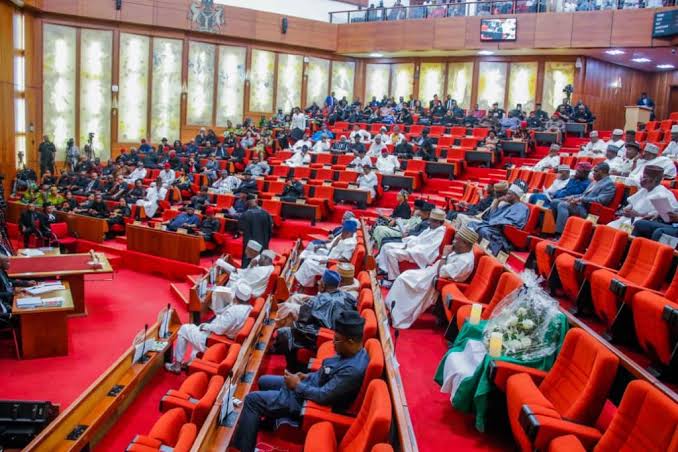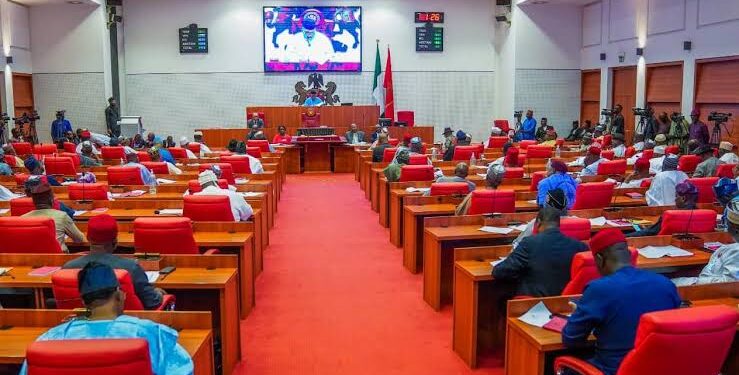The Nigerian Senate on Thursday approved the second reading of President Bola Tinubu’s Tax Reform Bills. These proposed laws aim to overhaul Nigeria’s tax administration and improve revenue collection processes.
Overview of the Bills
The four bills under consideration include:
1. Joint Revenue Administration Bill
Establishes the Joint Revenue Board, Tax Appeal Tribunal, and Office of the Tax Ombudsman for harmonizing revenue administration and resolving disputes.
2. Nigeria Revenue Service Bill
Replaces the Federal Inland Revenue Service (FIRS) Act, creating the Nigeria Revenue Service (NRS) with enhanced powers for tax assessment, collection, and accountability.
3. Revenue Administration Bill
Clarifies the assessment, collection, and accounting of revenues for all levels of government and defines the powers of tax authorities.
4. Nigeria Tax Act Consolidates existing tax laws, addressing the taxation of income, transactions, and instruments under a unified framework.

Support and Criticisms
Senate Majority Leader Opeyemi Bamidele argued that the reforms represent a paradigm shift in Nigeria’s tax system, benefiting citizens and improving transparency. However, Senator Ali Ndume and other stakeholders raised significant concerns:
Constitutional Conflict: Ndume argued the reforms contradict the 1999 Constitution, suggesting constitutional amendments should precede the bills.
Stakeholder Opposition: The Nigerian Governors’ Forum, the National Executive Council, traditional rulers, and other groups have expressed dissatisfaction with the bills.
Parliamentary Due Process: Critics stress the need for thorough scrutiny to ensure proper adherence to legislative rules.
Despite the criticisms, senators like Seriake Dickson and Mohammed Ali Monguno strongly supported the reforms, leading to their approval through a voice vote.
Why It Matters
Nigeria has long struggled with inefficiencies in tax collection and revenue management, which hinder economic growth. These reforms aim to create a unified, transparent, and efficient tax system. However, concerns about constitutional violations and stakeholder dissent underscore the need for caution to prevent potential legal and political challenges.
Bottom Line
While the Tax Reform Bills promise significant improvements to Nigeria’s tax administration, their success depends on addressing constitutional issues and securing broader stakeholder support. The Senate must strike a balance between reform ambitions and adherence to due process.

















